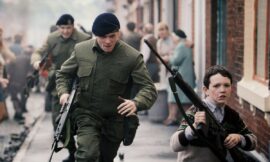Hans Zimmer is one of the most influential and innovative film composers of the modern era. Known for his unique blend of orchestral arrangements, electronic elements, and sound design, Zimmer has shaped the soundtracks of many of Hollywood’s biggest films, leaving an indelible mark on the world of cinema. With a career spanning over four decades, Zimmer’s work is synonymous with powerful emotional resonance, unforgettable melodies, and ground-breaking techniques in film scoring.
Early Life and Education
Born on September 12, 1957, in Frankfurt, Germany, Hans Zimmer was introduced to music at an early age. His mother, a pianist, and his father, a doctor, fostered a creative environment in which Zimmer was exposed to both classical and contemporary music. However, Zimmer’s journey into the world of film music began not in a traditional conservatory, but in a way that would later define his career—through experimentation and innovation.
Zimmer attended the Hochschule für Musik in Frankfurt, but he didn’t follow a traditional music path. Instead of focusing on classical composition, he began experimenting with synthesizers and electronic music. During the late 1970s and early 1980s, Zimmer was influenced by the emerging electronic music scene, including acts like Kraftwerk and the popularization of synthesizers in music production. He worked in various studios, including in London, where he collaborated with numerous musicians, gaining a reputation as a versatile and creative composer.
Early Career and Breakthrough
Zimmer’s first significant break came in the early 1980s when he was hired as a composer for film music. Before that, he had contributed to a number of movie scores, working as a programmer and assistant to composers like Stanley Myers. This led to his first major opportunity to compose a film score for the 1988 movie Rain Man, directed by Barry Levinson. Although Zimmer had already worked on other films, Rain Man marked his first significant exposure to the world of film scoring. His score, which combined both traditional orchestral music with electronic elements, earned him a nomination for an Academy Award, cementing his status as a rising talent in the industry.
This success opened the door for Zimmer to work on bigger projects, and in the years following Rain Man, he composed scores for several highly successful films. In 1990, Zimmer scored Thelma & Louise, a film by Ridley Scott. This score featured one of Zimmer’s most memorable melodies, and his ability to merge classical and modern sounds would become a defining feature of his work. This was followed by another Ridley Scott film, Black Rain (1989), which also showcased Zimmer’s talent for blending different styles, this time with a more electronic, urban sound.
Revolutionizing Film Music
Zimmer’s big breakthrough, however, came in 1994 with the release of The Lion King. The score for The Lion King would become one of Zimmer’s most iconic works and solidify his reputation as one of the greatest film composers of all time. Collaborating with lyricist Tim Rice and composer Elton John, Zimmer helped create a soundtrack that became a cultural phenomenon. The music was integral to the film’s emotional depth, combining traditional African rhythms with Western orchestration. For his work on The Lion King, Zimmer won an Academy Award for Best Original Score, as well as a Golden Globe and Grammy Award.
The success of The Lion King allowed Zimmer to continue pursuing ambitious and experimental projects. Over the years, he would collaborate with directors such as Ridley Scott, Christopher Nolan, and Zack Snyder, creating some of the most memorable and impactful film scores of the 21st century.
Zimmer’s ability to marry cutting-edge technology with traditional orchestral sounds would become a hallmark of his later works. One of the most significant collaborations in Zimmer’s career has been with director Christopher Nolan. Their partnership began with the 2005 film Batman Begins, a dark, gritty reboot of the Batman franchise. Zimmer, along with composer James Newton Howard, provided a score that captured the tone of Nolan’s vision, combining elements of minimalism with intense orchestral arrangements. The score for Batman Begins would be just the beginning of Zimmer’s collaboration with Nolan.
In 2008, Zimmer worked on The Dark Knight, the sequel to Batman Begins. The score for The Dark Knight is considered one of the best film scores ever composed. Zimmer, along with Howard, created a score that was edgy, experimental, and perfectly complemented the film’s dark themes. The iconic “Why So Serious?” theme, associated with Heath Ledger’s portrayal of the Joker, became an instant classic. The use of heavy percussion, electronic elements, and a growing sense of tension in the score mirrored the film’s escalating stakes and psychological tension.
Zimmer’s work on Inception (2010) further cemented his reputation as a master of film music. The score for Inception is notable for its use of a distorted, time-bending motif—the iconic BRAAAM sound—that became an instantly recognizable part of modern cinematic music. The innovative use of sound, along with Zimmer’s meticulous attention to detail, helped to enhance the surreal, dreamlike quality of the film. The score was nominated for multiple awards and is still widely regarded as one of the best film scores of the 21st century.
Expanding into New Territories
Zimmer’s success continued throughout the 2010s, with him composing scores for some of the biggest films in Hollywood. He worked on Interstellar (2014), another collaboration with Nolan. The score for Interstellar was a departure from Zimmer’s typical style, incorporating a blend of organ music, strings, and electronic sounds to create an otherworldly atmosphere that matched the film’s exploration of space and time. The haunting, ethereal score perfectly complemented the emotional heart of the film, with Zimmer once again demonstrating his ability to create emotionally resonant music.
In addition to his work on major blockbusters, Zimmer has also branched out into other areas of film and media. His score for Dunkirk (2017), also directed by Christopher Nolan, was a masterclass in tension and suspense. The score’s use of ticking clocks, minimalist strings, and intense brass created an immersive atmosphere that perfectly captured the harrowing nature of the film’s World War II setting. The score for Dunkirk was widely praised and earned Zimmer another Academy Award nomination.
Zimmer’s versatility also allowed him to work on other genres. His work on Pirates of the Caribbean: The Curse of the Black Pearl (2003) helped establish the musical identity of the franchise, with themes that were both sweeping and rousing. He also worked on Gladiator (2000), The Thin Red Line (1998), Sherlock Holmes (2009), and Madagascar (2005), each showcasing Zimmer’s ability to adapt his style to suit different genres and themes.
Legacy and Influence
Hans Zimmer’s influence on modern film scoring cannot be overstated. His innovative use of synthesizers, sampling, and sound design, combined with his ability to create sweeping, emotionally powerful orchestral arrangements, has redefined what film music can be. Zimmer’s soundtracks are known for their ability to evoke deep emotions, enhance the visual storytelling, and remain memorable long after the credits roll.
Zimmer has also paved the way for a new generation of composers, many of whom cite him as an influence. His work has inspired composers like Junkie XL (Tom Holkenborg), Ludwig Göransson, and Ramin Djawadi, who have all embraced his blending of electronic and orchestral sounds.
In addition to his work on film, Zimmer has expanded his influence into live performances. He has performed with his band, Hans Zimmer Live, where he reinterprets his iconic scores for live audiences, showcasing the versatility of his music in a live setting.
Conclusion
Hans Zimmer’s career is a testament to the power of music in film. With his ability to blend traditional orchestration with modern technology and electronic elements, Zimmer has created some of the most iconic and memorable film scores in cinematic history. From The Lion King to Inception to Dunkirk, his work continues to resonate with audiences around the world, cementing his place as one of the greatest film composers of all time. His innovative approach to film scoring has not only shaped the sound of contemporary cinema but has also inspired countless musicians and composers to push the boundaries of what is possible in film music.



